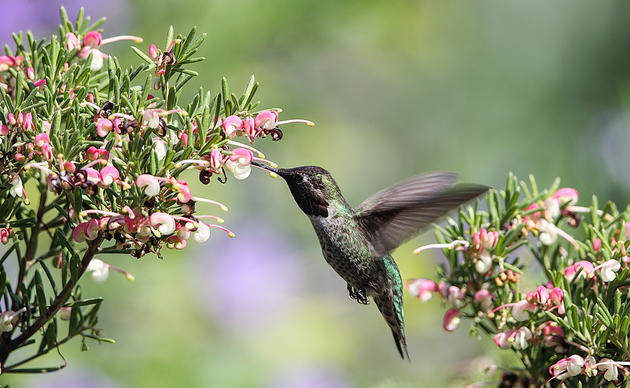Responding to an alarming drop in the rare bird’s numbers, the California Fish and Game Commission today approved an emergency listing of the Tricolored Blackbird under the California Endangered Species Act. Representatives of Audubon California say they support the action by the Commission, which comes on the heels of a statewide survey completed this summer showing a 44 percent decline in Tricolored Blackbirds since 2011.
The Tricolored Blackbird, which once numbered in the millions, lives almost entirely in California, and has long been of concern to conservationists. The loss of 90 percent of its historic habitat is likely the main cause of its decline. A recent survey conducted by UC Davis with the support of Audubon California and the California Dept. of Fish & Wildlife counted 145,000 Tricolored Blackbirds remaining in California, down from 260,000 in 2011.
“The Fish and Game Commission made the right decision today,” said Brigid McCormack, executive director of Audubon California. “While we are pleased that this struggling species is getting the protections it needs, we understand that this is just the beginning of its path to recovery. We are committed to working closely with our partners at government agencies like the Department of Fish and Wildlife and the Natural Resource Conservation Service, as well as agricultural groups like Western United Dairymen, to save this iconic species from extinction.”
In recent years, Audubon California has supported efforts by the Natural Resources Conservation Service to create agreements with dairy farmers to delay harvests to allow the young birds to fledge. These agreements with farmers have saved many thousands of Tricolored Blackbirds. In one notable instance earlier this year, Audubon California rallied thousands of supporters to save a colony of more than 20,000 birds that were at risk of being destroyed on a farm in Madera County.
Because of the loss of their traditional wetland habitat, Tricolored Blackbirds often create their huge colonies on dairy farm wheat fields. This puts them at risk when the farmer needs to harvest the field before the young birds have fledged.
“While this ruling adds additional protections for the species, the real, on-the-ground solutions will be found in partnerships with landowners, conservation organizations, scientists and industry,” said McCormack.
According to the California Endangered Species Act, the Commission may list a species when there is an imminent danger. Once listing is approved, the bird will be protected for six months, after which time the listing may be renewed for another six months. The Commission will likely consider a formal listing petition sometime in the spring.
(photo of Tricolored Blackbirds by Linda Pittman)
By Garrison Frost
Monthly Giving
Our monthly giving program offers the peace of mind that you’re doing your part every day.




